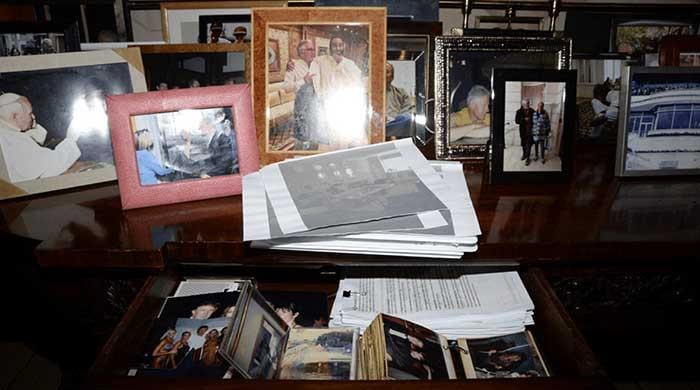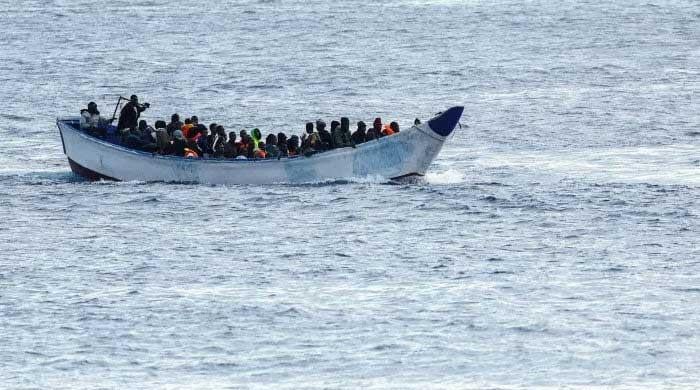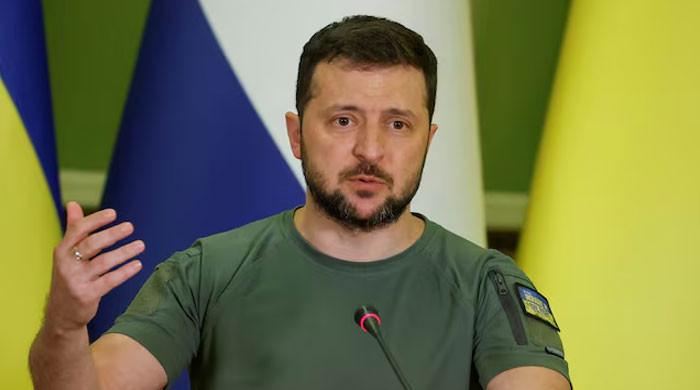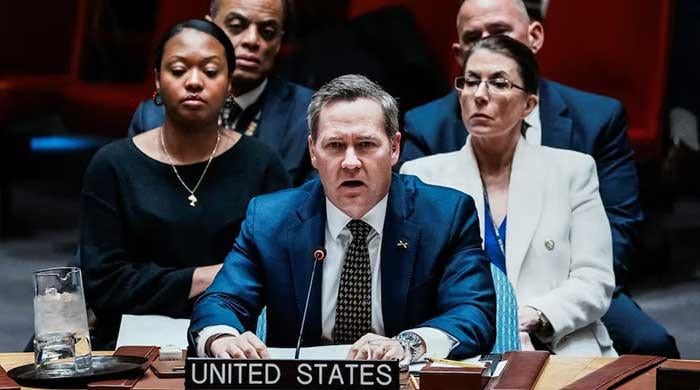Macron's middle approach 'strikes raw nerve' for Netanyahu: NYT
French president urges countries to stop supplying weapons to Israel, move which has infuriated Netanyahu
October 08, 2024
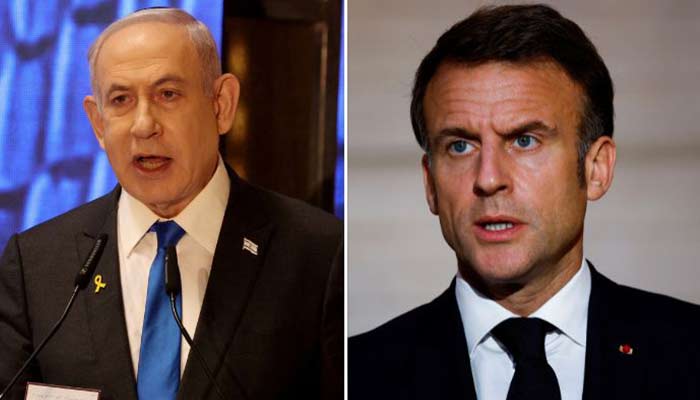
French President Emmanuel Macron has urged countries to stop supplying weapons to Israel if they want a ceasefire, a move which has apparently infuriated and angered Israeli Prime Minister Benjamin Netanyahu, reported the New York Times.
Following the French leader’s comments over the weekend, Netanyahu indignantly said in a video statement: “As Israel fights the forces of barbarism led by Iran, all civilised countries should be standing firmly by Israel’s side.”
Responding directly to the French president, he said: “Yet, President Macron and some other Western leaders are now calling for an arms embargo against Israel. Shame on them.”
“Let me tell you this, Israel will win with or without their support, but their shame will continue long after the war is won,” he added.
Notably, it was not the first time Macron had suggested such a move as he put forward the same stance last month at the United Nations General Assembly (UNGA) and argued that it is “inconsistent” to push for a cease-fire while supplying weapons.
However, his statement appears to have struck particularly a raw nerve for the Israeli prime minister this time.
According to the analysts, they were not surprised by Macron’s statement.
The French leader has made efforts to strike a delicate balance in his approach to the Middle East conflict, by expressing support for Israel’s right to self-defense while also simultaneously criticising Israeli military operations and pleading for a cease-fire in order to put an end to growing civilian casualties in Gaza and now Lebanon, which is a former French colony.
It was also added by the analysts that the statement fits with Macron’s personal style.
Middle East expert at the Jean-Jaurès Foundation David Khalifa, who is about to publish a book on the fallout of Hamas’s Oct 7 attack on Israel, said that the timing of Macron’s comments just before the one-year anniversary of that attack was “particularly awkward".
“In the short term, it clearly won’t help us be heard by the Israelis,” he said, adding that “there is a question mark hanging over the clarity of French diplomacy.”
Moreover, France hardly sells any weapons to Israel. Netanyahu’s state receives over 90% of its arms shipments from the United States and Germany, according to the Stockholm International Peace Research Institute, which tracks the global weapons trade.
As a result, Macron’s comments were widely seen as a sign of frustration with the US.
Parallel to this, professor of Middle Eastern studies at St Joseph University in Beirut Karim Émile Bitar said that it was an example of Macron’s trademark “at the same time” approach to policy-making, which is constantly considering both sides of the equation.
“It’s complicated enough in domestic politics,” he said. “But in foreign policy, when you try to please both sides, you end up alienating both sides.”
Earlier on Monday, Israel stepped up its air and ground offensive in Gaza with more attacks on Hamas posts as both sides marked the first anniversary of a war that has destroyed much of the territory and changed Palestinians' lives forever, reported Reuters.
For its part, Hamas said it struck Israel's commercial capital Tel Aviv with a missile salvo, setting off sirens in central Israel.
Israel's subsequent military campaign in Gaza has killed nearly 42,000 Palestinians, according to the small coastal enclave's health ministry, displaced nearly the entire 2.3 million population, and caused a hunger and health crisis.
On the other side, Israeli airstrikes have displaced 1.2 million people in Lebanon, and Israel's intensified bombing campaign has worried many Lebanese that their country will experience the vast scale of destruction wrought on Gaza by Israel.





